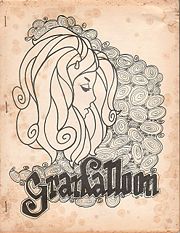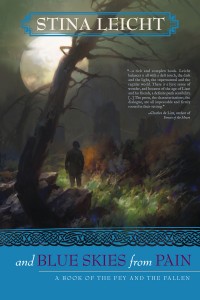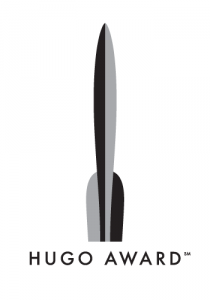 Since the beginning of April, Fantasy Cafe has been running a wonderful series of articles for Women in SF&F Month, with the hopes of exploring and celebrating the impact that women (as authors and characters) have had on our favourite genre. In addition to this, there is some discussion of the politics in the genre, gender equality and reviewer bias.
Since the beginning of April, Fantasy Cafe has been running a wonderful series of articles for Women in SF&F Month, with the hopes of exploring and celebrating the impact that women (as authors and characters) have had on our favourite genre. In addition to this, there is some discussion of the politics in the genre, gender equality and reviewer bias.
Kristen, editor of Fantasy Cafe, explains the driving force behind Women in SF&F Month:
This particular subject is one I’ve felt pretty strongly about for a while now. A few years ago, I noticed that most of the fantasy and science fiction books being talked about on many blogs and forums were written by men and started questioning whether or not there was a significant number of women writing these genres. Since then, I’ve of course found that there are many female authors of fantasy and science fiction books and it’s become very important to me to make sure their work is recognized and discussed. Usually I just do this quietly by reading and reviewing a lot of books written by women, but after the topic came up again I decided I wanted to do more to showcase the many women who are writing and reviewing all kinds of different types of fantasy and science fiction. So I started asking around to see if there was any interest in being a part of this and have spent the past 2 or 3 weeks gathering volunteers and posts.
So, here are some of the articles from the series that have caught my eye:
Vanishing the Elephant by Stina Leicht:
Addressing touchy subjects with story is one of Science Fiction and Fantasy’s best traditions. Sure, not all Sci-fi and Fantasy does this. (Some novels are intended to be fluffy and they do have their place.) However, I feel the main thing that sets Sci-fi and Fantasy apart from other genres is its capacity to make the reader think, in addition to SFF readers’ willingness (perhaps even eagerness) to contemplate complex subjects.
Elizabeth Bear, author of Range of Ghosts, on how you can support women who write SF&F:
[T]he problem is not that women are not writing science fiction, or that science fiction by women is not being published. It’s that a certain segment of fandom doesn’t pay enough attention to notice.
As you might imagine, I find this intensely frustrating. It’s as if one or two women in each generation of writers are anointed to become token representatives of our gender in the general critical discourse, and the rest–somehow never get talked about very much.
The good news is, this is easy to fix.




